#free libre open source software
Explore tagged Tumblr posts
Text
Short sum for newbie system designer processor steps

Here are a few beginner projects for learning the ropes of customized computation architecture design:
Pana, a '4-4-4' instruction processor derived from Intersil 6100 & GaryExplains' but for 4-bit data. Uses the sixteen (16) RISC instructions shown by GaryExplains and only four (4) of its registers (ACC, PC, LN & MQ) as per of the Intersil 6100 specification. Doing as much work onto nibbles like an MVP Intel 4004 can, great as a BCD & Nibble data converter for later designs.
Tina, a barely expanded '4-4-8' processor derived from the "Pana" design, it uses more registers by adding twelve general-use registers (A-F, U-Z letters) and operate onto a single byte of data at a time. Great for two nibbles operations, byte-wise interoperability and 8-bit word compatibility with all sorts of modern processors from the seventies-onwards.
Milan, a '6-2-24' strong hybrid 8-bit / 12-bit processor derived from the "Tina" design, operating onto three bytes or two tribbles of data at once depending of use-case, while fitting in exactly 32-bit per instruction. Aimed at computing three 8-bit units, enabling 16-bit & 24-bit compatibility as well as up to two tribble operands. A great MVP implementation step towards my next own tribble computing architecture and a competitor to the Jack educational computer as shown in the NAND2Tetris courseware book.
When I am done with such, I will be onto three tribble-oriented architectures for lower-end, middle-end and upper-end "markets". Zara being lower-end (6-bit opcode, 6-bit register & 36-bit data = 48-bit instructions), Zorua being mid-end (8-bit opcode, 8-bit register and 48-bit data = 64-bit instructions) and Zoroark being upper-end (12-bit opcode, 36-bit register and 96/144-bit data (so either eight or twelve tribble operands worth of data) = 144/192-bit instructions, aiming to emulate close enough to an open-source IBM's PowerISA clone with VLIW & hot-swap computer architecture).
By the way, I haven't forgotten about the 16^12 Utalics game consoles and overall tech market overview + history specifications, nor have I forgotten about studying + importing + tinkering around things like Microdot & Gentoo & Tilck. I simply need to keep a reminder to myself for what to do first when I shall start with the computation engineering process. Hopefully that might be interesting for you to consider as well... Farewell!
EDIT #1
youtube
Tweaked and added some additional text & considering studying various aspects of Linux and overall copyleft / open source culture engineering scene, especially over Gentoo alternative kernels & hobby / homebrew standalone operating systems (GNU Hurd, OpenIndiana, Haiku... as well as niche ones like ZealOS, Parade, SerenityOS...) as to design a couple computation ecosystems (most derived from my constructed world which takes many hints from our real-life history) and choosing one among them to focus my implementation efforts onto as the "Nucleus" hybrid modular exo-kernel + my very own package modules collection. (Still aiming to be somewhat compatible with existing software following Unix philosophy principles too as to ease the developer learning cost in initial infrastructure compatibility & overall modularized complexity; Might also use some manifestation tips & games to enrich it with imports from said constructed world if possible)
2 notes
·
View notes
Text
traffic cone cosplay


(he got hit by a car)
#for the record “traffic cone” is not a fictional character from a fandom or anything#im just actually dressed as a real traffic cone. like from real life.#actually i guess this could be a... vlc media player cosplay?#sure that works#new animal jam fashion show theme just dropped: free/libre open source software#animal jam#animal jam classic#aj classic#jamblr
136 notes
·
View notes
Text
The next version of Tux Paint will include some brief descriptions of many brushes.
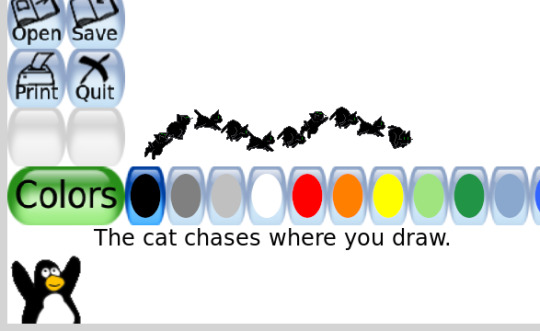
26 notes
·
View notes
Text
I've been using free and open-source software for nearly a decade at this point, and yet whenever I want to open up LibreOffiice I instinctively type "Word" or "Excel" in my OS's search menu.
4 notes
·
View notes
Text
RenderDoc the block
Today I solved the blocking issue in my Macana OpenGL project. I did it using RenderDoc, an open-source graphics debugger suggested to me by a colleague.
Since I'm a complete noob at RenderDoc (and not very proficient at OpenGL either), it took me awhile to gain traction. I didn't use the tool very effectively. But the key virtue of a good debugger is that helps users visualize what's going on. Somehow in the flood of details, I noticed that my problematic texture (which didn't have mipmaps) used a filter intended for mipmaps. And that proved to be my issue.
Meanwhile, I'm making progress configuring my new Linux Mint environment. I finally got the Cinnamon panel (analogous with the Windows taskbar) configured the way I like. I must've spent hours; it seems to me the Cinnamon UI could be a lot more intuitive.
Also I discovered I had 2 copies of LibreOffice: one installed from Apt and another installed from Flatpak. I only need one copy, so I'm removing the older (Apt) install to free up disk space.
#disk space#opengl#debugging#open source#computer graphics#accomplishments#free tools#textures#panel#linux mint#libre office#flatpak#duplication#software development#user interface#uninstall#war stories#traction#weird bug
2 notes
·
View notes
Text
Apresentação sobre Software Livre no evento WP Fortaleza e PHP Com Rapadura
Apresentação sobre Software Livre
View On WordPress
0 notes
Text
What is F(L)OSS about really? (Preview #1)
youtube
What is licensing, ownership and rights about?
I often describe such throughout the software domain but can easily be applied almost everywhere in society, like in hardware and culture. If I am not mistaken, it pertains to what you actually is your own, either it is home, furniture, computer hardware, software, artistic media, equipment, et cetera. Licensing is similar but has a more autonomous / shared ownership meaning applied.
And the reason why I believe that matters so much is because while the majority (of the human bell curve of demographics*) oftentimes ignore and brush off their personal agency on the wider scale of human planetary affairs, that attitude of distributing their energy & efforts towards current grand managerial bodies like big corporations and big governments is a quite short-sighted perspective and has a quite negative impact in our present day and potential future(s). It is not exclusively negative one-sided story but still, profiteers are not providing enough value for what you invest into their zone of control, monetary or otherwise... and that is very concerning considering the current global society context and the decisions made by such staff of managers & "drones".
The non-profit organization that is Creative Commons as well as my provided hyperlinks across this article should give you a decent insight into matters...
Spectrum of licensing paradigms

Copyright, the large landlords & proprietary ownership models pertain to the old Liberalism way of thinking (at least if we are to follow it under late-stage capitalism, liberalism and the philosophy of contemporary feudal US law). Not always bad and could really be better implemented as seen in the centuries prior to now.
(I mean, when things were less... structured, competitive, authoritative and rigid in the West and elsewhere, the autonomy and liberties allowed by such a paradigm of a abundance of workforce & income was nice to have and use, but not without some costs even then. Compared to now where things also have costs but as those grew for the low & middle classes and were not compensated by such rigid old models by the aging rich baby-boomers population yet, which is a shame considering all sides really could use a update / upgrade in their to persist in profits and long-term positive legacy.)
But as of today, it is so often misused and taken to extremely abusive extents as shown by the actions of major corporations going all over with massive-scale spying (look at Oracle data tracking record of like 5 billion people and growing), malevolent compliance (look at how both Apple and Microsoft comply heavily with US governmental guidelines for data collection, either by on-chip spyware or otherwise...), critical citizen censorship (like in Continental China, Russia and even the US of A as demonstrated by Edward Snowden's), corporate cooperation & corporative law-craft evils (Valve & Nintendo implicitly agreeing to shutdown Dolphin emulators on Steam, the way Microsoft-Mojang Minecraft falls apart over 1.19 update matters and how major corporations overall back each other up knowing their days are counted), vendor lock-ins, big tech oligopolies and marketshare dominions, expensive prices for very low value provided even for corporate agencies, too much managerial staff oversight control on decisions over workers, failing advertising economy, low-security bottlenecks with malware + botnets (thanks for the "infinite" loop of "security" with leaks, major failures & bulk password breakers trade market against consumers being traded against the will by black hat hackers & operatives that get paid by every irresponsible hidden or not governing bodies autonomously in lawful impunity, that unofficial though-police & cultural choices fails the potential of us all and will accelerate much the descent to further of a societal collapse that is entirely unnecessary if we are to rise to the stars on-time for the dream we were sold to in life), overstaffing & underpay (Amazon & every other mainline corporation abusing his employees for quicker short-term profit, paying very often low-as-in-slavery wages and Amazon taking full control of their employees' communication channels for drone promotion), menial purpose-less tasks and walled garden policies (looking at Apple's overpriced options being less competitive than the value and price paid for such, as well as the hopefully not soon Microsoft going onto such a exclusivity market that they alienate the best in their customer base into migrating away to non-exclusive environments like Linux), along many other situations / issues as revealed by information leaks & literal living in this global culture, both in explicit and implicit forms.
Copyleft, open source, free culture and library economy are the basics of our best bet to solve our current state of affairs, at least compared to what late-stage capitalists offer to us. Not the best thing forever more, but something quite more competitive and more appealing both short-term & long-term to the other corner in the licensing spectrum for the next few centuries, (or until the copyright catches up in given value to the customer and ethics to the lower classes fast but that's very unlikely due to the current rich folks' greed & ideology...) After all, today's enthusiasts, indie artists and modders are tomorrow developers, maintainers and architects.
Permissive licenses, public domain, and third-way alternatives?
~
Nuances on licensing
~
I have a fairly specific example in mind over one thing we should do better for despite the prejudices ill-fully distributed concerning AIs androids and other smart instruments. You see, as a sapient-kind that most likely desires progress and growth for yourself and potentially other individuals, we have a strong responsibility to cater and take care of both ourselves and every single thing we have agency over (to an agreeable extent ofc, not zealous over it) for both autonomous GAI agents and our current clade / species of humans alike... (there are likely aliens and further future humans species awaiting to be born from our efforts this century, unless the meta history is exclusively a job for some other elder sapient species coming before ourselves, which is extremely unlikely)
Seeing how the current mainstream APIs (even OpenAI and Stable Diffusion's) and datasets available for generative AIs, machine leaning models and other such autonomous agents are quite unethical / illegally acquired and heavily biased against a few core values we share instead of promoting the better parts of our psyche and species, I wanted to point out and encourage the independent & humanist re-developments of such technical promesses before the time when we might lose fully those freedoms / rights to develop the very basics of such future-oriented infrastructure.
After all, if we desire to make sure of both growth, progress, autonomy and abundance for us and our species now and onwards, we need to make sure that we get the rightful tools for stellar expansion on-time. And among those Quality-of-Life things that will help us by far for such a purpose and more will be a benevolent GAI (modular?) system. And that takes initial efforts and gentle caring humane guidance to show and bias such a GAI module into the brighter futures that we aim for really. Also, we should not screw up the future of our species (and other sapients') seeing how grand, and magnificent those futures are really headed towards. (See Stellaris, Isaac Arthur, melodysheep and Kurzgesagt)
That being said, I design my constructed world for multiple purposes including to emulate / simulate history, learn & develop my skills, advocate for my worldview and show to each and everyone why how and what matters for the prosperity of the whole species.
youtube
~?
youtube
Of course, here is the not-so-surprising cliffhanger twist ending of how all of it relates to (Woodrow) Wilsonism, global politics, socio-economics & the last half-millenium of historical patterns...
But that's for a later article. So take care and farewell!
0 notes
Text
If we are already discord friends feel free to also friend me on Revolt just ask me for my @, I'm going to try it
Remember when I told ya'll last month to be ready to start looking for a Discord alternative?

Yeah things aren't looking good for discord.
#I love me some free open source software#every piece of software I've used thats turned into a cash grab and i left#ive ended up using an open source version#microsoft office -> libre office#twitter -> bluesky (i dont use twitter at ALL anymore)#im like 1 skillset away from using linux im just too lazy to learn how to use it#fav#if youre friends with me on discord already ask me for my Revolt tag
54K notes
·
View notes
Text
Oh hey since I mentioned sci hub again
I'd love to hear people's stories about small things that radicalized them in benign ways. I'll start.
I was already pretty leftist at this point, but being associated with academia so long means I've gotten free access to a variety of scientific journals, software, and more for... Basically my entire adult life. On campus, all of those systems have automatic logins. But off campus, usually there's janky, half-functional systems associated with actually inputting your credentials into these sites. Scientific journals especially are really and at tracking logins, and oftentimes have to link back to your uni's generic login page, which they're bad at pinging. Software installation usually requires
So instead of using services that the university had already paid for, for me to freely use, like adobe, journal logins, and Microsoft products, I started using free equivalents. Sci hub, gimp, libre office, Ubuntu... Not because I was invested in open source and free access mentalities at the time, but because they were literally quicker and simpler to use.
And then I started thinking about all of the little bits of tech infrastructure I was using to access my "free" stuff.
Someone coded those systems.
Some tiny portion of a server is devoted to handling those pings an login requests.
Someone spent hours upon days of work moving office 365 and adobe from actual pieces of software that fully live on your computer into stripped down versions of themselves that now have to verify
Someone made the payment system for Nature.
So. Much. Wasted. Labor. Just to block people from already existing services. That have alternatives. That are as good. For free. And they can be free largely because they don't have all of the bullshit associated with locking them down and keeping them proprietary.
Tech and science are of course what I have the most experience in, but I feel like once you start realizing that in one sector, you start seeing it everywhere.
Anyways this is a barely focused unmedicated ADHD ramble but I'd love to hear other examples
495 notes
·
View notes
Text
Tux Paint 0.9.32 is available!
A number of new tools have been added! Download it today for Windows, macOS, Android, Linux, or Haiku!
⦬ 1-, 2-, and 3-point perspective
Three pairs of new tools provide ways to easily sketch drawings in Tux Paint using 1-, 2-, and 3-point perspective, as well as adjusting the different perspectives' vanishing points. The drawing tools are similar to the Line tool, except only certain angles are possible, based on the position of the line relative to the vanishing points. For example, in 1- and 2-point perspective, lines may be drawn vertically and horizontally, but diagonally they must always be angled toward or away from the vanishing point(s).

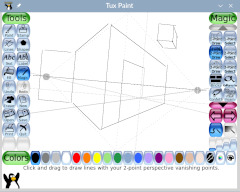

🧊Isometric, Dimetric, Trimetric, and Oblique
Another new set of tools provide ways to sketch drawings in an isometric projection, plus two other orthographic projections, dimetric and trimetric, as well as oblique. For the latter three, it's possible to adjust various drawing angles that each tool allows.


🟒Epitrochoid and Hypotrochoid
Two new tools have been added that draw "centered trochoid" curves — patterns created when one circle rolls around the inside or outside of another circle. The resulting shapes are similar to those created by devices such as the Spirograph. The radii of both circles, plus the position of the virtual pen relative to the moving circle, may all be adjusted.
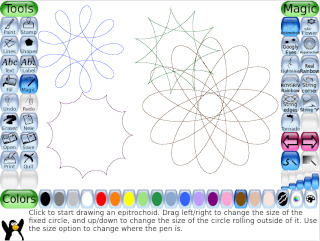
Read more in our press release.
39 notes
·
View notes
Text
"Open" "AI" isn’t
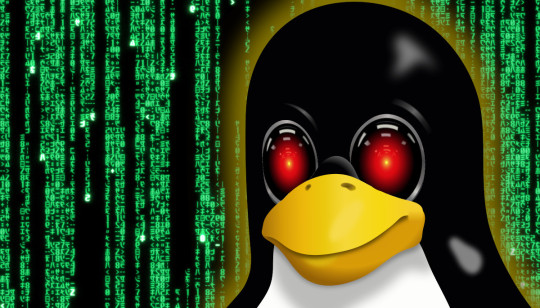
Tomorrow (19 Aug), I'm appearing at the San Diego Union-Tribune Festival of Books. I'm on a 2:30PM panel called "Return From Retirement," followed by a signing:
https://www.sandiegouniontribune.com/festivalofbooks

The crybabies who freak out about The Communist Manifesto appearing on university curriculum clearly never read it – chapter one is basically a long hymn to capitalism's flexibility and inventiveness, its ability to change form and adapt itself to everything the world throws at it and come out on top:
https://www.marxists.org/archive/marx/works/1848/communist-manifesto/ch01.htm#007
Today, leftists signal this protean capacity of capital with the -washing suffix: greenwashing, genderwashing, queerwashing, wokewashing – all the ways capital cloaks itself in liberatory, progressive values, while still serving as a force for extraction, exploitation, and political corruption.
A smart capitalist is someone who, sensing the outrage at a world run by 150 old white guys in boardrooms, proposes replacing half of them with women, queers, and people of color. This is a superficial maneuver, sure, but it's an incredibly effective one.
In "Open (For Business): Big Tech, Concentrated Power, and the Political Economy of Open AI," a new working paper, Meredith Whittaker, David Gray Widder and Sarah B Myers document a new kind of -washing: openwashing:
https://papers.ssrn.com/sol3/papers.cfm?abstract_id=4543807
Openwashing is the trick that large "AI" companies use to evade regulation and neutralizing critics, by casting themselves as forces of ethical capitalism, committed to the virtue of openness. No one should be surprised to learn that the products of the "open" wing of an industry whose products are neither "artificial," nor "intelligent," are also not "open." Every word AI huxters say is a lie; including "and," and "the."
So what work does the "open" in "open AI" do? "Open" here is supposed to invoke the "open" in "open source," a movement that emphasizes a software development methodology that promotes code transparency, reusability and extensibility, which are three important virtues.
But "open source" itself is an offshoot of a more foundational movement, the Free Software movement, whose goal is to promote freedom, and whose method is openness. The point of software freedom was technological self-determination, the right of technology users to decide not just what their technology does, but who it does it to and who it does it for:
https://locusmag.com/2022/01/cory-doctorow-science-fiction-is-a-luddite-literature/
The open source split from free software was ostensibly driven by the need to reassure investors and businesspeople so they would join the movement. The "free" in free software is (deliberately) ambiguous, a bit of wordplay that sometimes misleads people into thinking it means "Free as in Beer" when really it means "Free as in Speech" (in Romance languages, these distinctions are captured by translating "free" as "libre" rather than "gratis").
The idea behind open source was to rebrand free software in a less ambiguous – and more instrumental – package that stressed cost-savings and software quality, as well as "ecosystem benefits" from a co-operative form of development that recruited tinkerers, independents, and rivals to contribute to a robust infrastructural commons.
But "open" doesn't merely resolve the linguistic ambiguity of libre vs gratis – it does so by removing the "liberty" from "libre," the "freedom" from "free." "Open" changes the pole-star that movement participants follow as they set their course. Rather than asking "Which course of action makes us more free?" they ask, "Which course of action makes our software better?"
Thus, by dribs and drabs, the freedom leeches out of openness. Today's tech giants have mobilized "open" to create a two-tier system: the largest tech firms enjoy broad freedom themselves – they alone get to decide how their software stack is configured. But for all of us who rely on that (increasingly unavoidable) software stack, all we have is "open": the ability to peer inside that software and see how it works, and perhaps suggest improvements to it:
https://www.youtube.com/watch?v=vBknF2yUZZ8
In the Big Tech internet, it's freedom for them, openness for us. "Openness" – transparency, reusability and extensibility – is valuable, but it shouldn't be mistaken for technological self-determination. As the tech sector becomes ever-more concentrated, the limits of openness become more apparent.
But even by those standards, the openness of "open AI" is thin gruel indeed (that goes triple for the company that calls itself "OpenAI," which is a particularly egregious openwasher).
The paper's authors start by suggesting that the "open" in "open AI" is meant to imply that an "open AI" can be scratch-built by competitors (or even hobbyists), but that this isn't true. Not only is the material that "open AI" companies publish insufficient for reproducing their products, even if those gaps were plugged, the resource burden required to do so is so intense that only the largest companies could do so.
Beyond this, the "open" parts of "open AI" are insufficient for achieving the other claimed benefits of "open AI": they don't promote auditing, or safety, or competition. Indeed, they often cut against these goals.
"Open AI" is a wordgame that exploits the malleability of "open," but also the ambiguity of the term "AI": "a grab bag of approaches, not… a technical term of art, but more … marketing and a signifier of aspirations." Hitching this vague term to "open" creates all kinds of bait-and-switch opportunities.
That's how you get Meta claiming that LLaMa2 is "open source," despite being licensed in a way that is absolutely incompatible with any widely accepted definition of the term:
https://blog.opensource.org/metas-llama-2-license-is-not-open-source/
LLaMa-2 is a particularly egregious openwashing example, but there are plenty of other ways that "open" is misleadingly applied to AI: sometimes it means you can see the source code, sometimes that you can see the training data, and sometimes that you can tune a model, all to different degrees, alone and in combination.
But even the most "open" systems can't be independently replicated, due to raw computing requirements. This isn't the fault of the AI industry – the computational intensity is a fact, not a choice – but when the AI industry claims that "open" will "democratize" AI, they are hiding the ball. People who hear these "democratization" claims (especially policymakers) are thinking about entrepreneurial kids in garages, but unless these kids have access to multi-billion-dollar data centers, they can't be "disruptors" who topple tech giants with cool new ideas. At best, they can hope to pay rent to those giants for access to their compute grids, in order to create products and services at the margin that rely on existing products, rather than displacing them.
The "open" story, with its claims of democratization, is an especially important one in the context of regulation. In Europe, where a variety of AI regulations have been proposed, the AI industry has co-opted the open source movement's hard-won narrative battles about the harms of ill-considered regulation.
For open source (and free software) advocates, many tech regulations aimed at taming large, abusive companies – such as requirements to surveil and control users to extinguish toxic behavior – wreak collateral damage on the free, open, user-centric systems that we see as superior alternatives to Big Tech. This leads to the paradoxical effect of passing regulation to "punish" Big Tech that end up simply shaving an infinitesimal percentage off the giants' profits, while destroying the small co-ops, nonprofits and startups before they can grow to be a viable alternative.
The years-long fight to get regulators to understand this risk has been waged by principled actors working for subsistence nonprofit wages or for free, and now the AI industry is capitalizing on lawmakers' hard-won consideration for collateral damage by claiming to be "open AI" and thus vulnerable to overbroad regulation.
But the "open" projects that lawmakers have been coached to value are precious because they deliver a level playing field, competition, innovation and democratization – all things that "open AI" fails to deliver. The regulations the AI industry is fighting also don't necessarily implicate the speech implications that are core to protecting free software:
https://www.eff.org/deeplinks/2015/04/remembering-case-established-code-speech
Just think about LLaMa-2. You can download it for free, along with the model weights it relies on – but not detailed specs for the data that was used in its training. And the source-code is licensed under a homebrewed license cooked up by Meta's lawyers, a license that only glancingly resembles anything from the Open Source Definition:
https://opensource.org/osd/
Core to Big Tech companies' "open AI" offerings are tools, like Meta's PyTorch and Google's TensorFlow. These tools are indeed "open source," licensed under real OSS terms. But they are designed and maintained by the companies that sponsor them, and optimize for the proprietary back-ends each company offers in its own cloud. When programmers train themselves to develop in these environments, they are gaining expertise in adding value to a monopolist's ecosystem, locking themselves in with their own expertise. This a classic example of software freedom for tech giants and open source for the rest of us.
One way to understand how "open" can produce a lock-in that "free" might prevent is to think of Android: Android is an open platform in the sense that its sourcecode is freely licensed, but the existence of Android doesn't make it any easier to challenge the mobile OS duopoly with a new mobile OS; nor does it make it easier to switch from Android to iOS and vice versa.
Another example: MongoDB, a free/open database tool that was adopted by Amazon, which subsequently forked the codebase and tuning it to work on their proprietary cloud infrastructure.
The value of open tooling as a stickytrap for creating a pool of developers who end up as sharecroppers who are glued to a specific company's closed infrastructure is well-understood and openly acknowledged by "open AI" companies. Zuckerberg boasts about how PyTorch ropes developers into Meta's stack, "when there are opportunities to make integrations with products, [so] it’s much easier to make sure that developers and other folks are compatible with the things that we need in the way that our systems work."
Tooling is a relatively obscure issue, primarily debated by developers. A much broader debate has raged over training data – how it is acquired, labeled, sorted and used. Many of the biggest "open AI" companies are totally opaque when it comes to training data. Google and OpenAI won't even say how many pieces of data went into their models' training – let alone which data they used.
Other "open AI" companies use publicly available datasets like the Pile and CommonCrawl. But you can't replicate their models by shoveling these datasets into an algorithm. Each one has to be groomed – labeled, sorted, de-duplicated, and otherwise filtered. Many "open" models merge these datasets with other, proprietary sets, in varying (and secret) proportions.
Quality filtering and labeling for training data is incredibly expensive and labor-intensive, and involves some of the most exploitative and traumatizing clickwork in the world, as poorly paid workers in the Global South make pennies for reviewing data that includes graphic violence, rape, and gore.
Not only is the product of this "data pipeline" kept a secret by "open" companies, the very nature of the pipeline is likewise cloaked in mystery, in order to obscure the exploitative labor relations it embodies (the joke that "AI" stands for "absent Indians" comes out of the South Asian clickwork industry).
The most common "open" in "open AI" is a model that arrives built and trained, which is "open" in the sense that end-users can "fine-tune" it – usually while running it on the manufacturer's own proprietary cloud hardware, under that company's supervision and surveillance. These tunable models are undocumented blobs, not the rigorously peer-reviewed transparent tools celebrated by the open source movement.
If "open" was a way to transform "free software" from an ethical proposition to an efficient methodology for developing high-quality software; then "open AI" is a way to transform "open source" into a rent-extracting black box.
Some "open AI" has slipped out of the corporate silo. Meta's LLaMa was leaked by early testers, republished on 4chan, and is now in the wild. Some exciting stuff has emerged from this, but despite this work happening outside of Meta's control, it is not without benefits to Meta. As an infamous leaked Google memo explains:
Paradoxically, the one clear winner in all of this is Meta. Because the leaked model was theirs, they have effectively garnered an entire planet's worth of free labor. Since most open source innovation is happening on top of their architecture, there is nothing stopping them from directly incorporating it into their products.
https://www.searchenginejournal.com/leaked-google-memo-admits-defeat-by-open-source-ai/486290/
Thus, "open AI" is best understood as "as free product development" for large, well-capitalized AI companies, conducted by tinkerers who will not be able to escape these giants' proprietary compute silos and opaque training corpuses, and whose work product is guaranteed to be compatible with the giants' own systems.
The instrumental story about the virtues of "open" often invoke auditability: the fact that anyone can look at the source code makes it easier for bugs to be identified. But as open source projects have learned the hard way, the fact that anyone can audit your widely used, high-stakes code doesn't mean that anyone will.
The Heartbleed vulnerability in OpenSSL was a wake-up call for the open source movement – a bug that endangered every secure webserver connection in the world, which had hidden in plain sight for years. The result was an admirable and successful effort to build institutions whose job it is to actually make use of open source transparency to conduct regular, deep, systemic audits.
In other words, "open" is a necessary, but insufficient, precondition for auditing. But when the "open AI" movement touts its "safety" thanks to its "auditability," it fails to describe any steps it is taking to replicate these auditing institutions – how they'll be constituted, funded and directed. The story starts and ends with "transparency" and then makes the unjustifiable leap to "safety," without any intermediate steps about how the one will turn into the other.
It's a Magic Underpants Gnome story, in other words:
Step One: Transparency
Step Two: ??
Step Three: Safety
https://www.youtube.com/watch?v=a5ih_TQWqCA
Meanwhile, OpenAI itself has gone on record as objecting to "burdensome mechanisms like licenses or audits" as an impediment to "innovation" – all the while arguing that these "burdensome mechanisms" should be mandatory for rival offerings that are more advanced than its own. To call this a "transparent ruse" is to do violence to good, hardworking transparent ruses all the world over:
https://openai.com/blog/governance-of-superintelligence
Some "open AI" is much more open than the industry dominating offerings. There's EleutherAI, a donor-supported nonprofit whose model comes with documentation and code, licensed Apache 2.0. There are also some smaller academic offerings: Vicuna (UCSD/CMU/Berkeley); Koala (Berkeley) and Alpaca (Stanford).
These are indeed more open (though Alpaca – which ran on a laptop – had to be withdrawn because it "hallucinated" so profusely). But to the extent that the "open AI" movement invokes (or cares about) these projects, it is in order to brandish them before hostile policymakers and say, "Won't someone please think of the academics?" These are the poster children for proposals like exempting AI from antitrust enforcement, but they're not significant players in the "open AI" industry, nor are they likely to be for so long as the largest companies are running the show:
https://papers.ssrn.com/sol3/papers.cfm?abstract_id=4493900

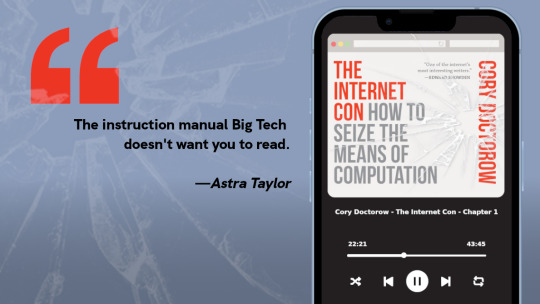
I'm kickstarting the audiobook for "The Internet Con: How To Seize the Means of Computation," a Big Tech disassembly manual to disenshittify the web and make a new, good internet to succeed the old, good internet. It's a DRM-free book, which means Audible won't carry it, so this crowdfunder is essential. Back now to get the audio, Verso hardcover and ebook:
http://seizethemeansofcomputation.org

If you'd like an essay-formatted version of this post to read or share, here's a link to it on pluralistic.net, my surveillance-free, ad-free, tracker-free blog:
https://pluralistic.net/2023/08/18/openwashing/#you-keep-using-that-word-i-do-not-think-it-means-what-you-think-it-means

Image: Cryteria (modified) https://commons.wikimedia.org/wiki/File:HAL9000.svg
CC BY 3.0 https://creativecommons.org/licenses/by/3.0/deed.en
#pluralistic#llama-2#meta#openwashing#floss#free software#open ai#open source#osi#open source initiative#osd#open source definition#code is speech
255 notes
·
View notes
Text
PSA: Free Software
Reading this may really save your time, privacy, and money! Reblog or share to spread awareness!
Folks often use software that’s expensive and sometimes even inferior because they don’t know there are alternatives. So to those unfamiliar: basically, free and open-source (FOSS) or "libre" software is free to use and anyone can access the original code to make their own version or work on fixing problems.
That does not mean anyone can randomly add a virus and give it to everyone—any respectable libre project has checks in place to make sure changes to the official version are good! Libre software is typically developed by communities who really care about the quality of the software as a goal in itself.
There are libre alternatives to many well-known programs that do everything an average user needs (find out more under the cut!) for free with no DRM, license keys, or subscriptions.
Using libre software when possible is an easy way to fight against and free yourself from corporate greed while actually being more convenient in many cases! If you need an app to do something, perhaps try searching online for things like:
foss [whatever it is]
libre [whatever it is]
open source [whatever it is]
Feel free to recommend more libre software in the tags, replies, comments, or whatever you freaks like to do!
Some Libre Software I Personally Enjoy…
LibreOffice
LibreOffice is an office suite, much like Microsoft Office. It includes equivalents for apps like Word, Excel, and Powerpoint, which can view and edit files created for those apps.
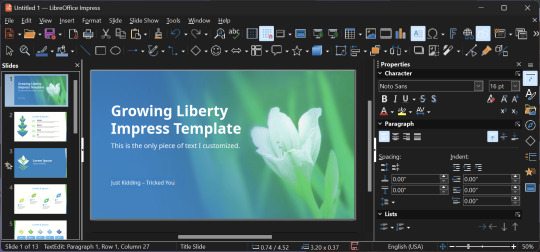
I can't say I've used it much myself yet. I do not personally like using office software except when I have to for school.
OpenShot
OpenShot Video Editor is, as the name suggests, a video editing program. It has industry-standard features like splicing, layering, transitions, and greenscreen.
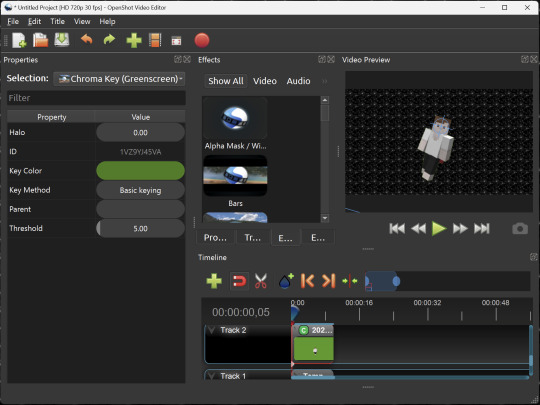
I've only made one video with it so far, but I'm already very happy with it. I had already paid for a video editor (Cyberlink PowerDirector Pro), but I needed to reinstall it and I didn't remember how. Out of desperation, I searched up "FOSS video editor" and I'm so glad I did. There's no launcher, there's no promotion of other apps and asset packs—it's just a video editor with a normal installer.
GIMP
GNU Image Manipulation Program is an image editor, much like Photoshop. Originally created for Linux but also available for Windows and MacOS, it provides plenty of functionality for editing images. It is a bit unintuitive to learn at first, though.

I've used it to create and modify images for years, including logos, really bad traceover art, and Minecraft textures. It doesn't have certain advanced tech like AI paint-in, but it has served my purposes well and it might just work for yours!
(Be sure to go to Windows > Dockable Dialogs > Colors. I have no idea why that's not enabled by default.)
Audacity
Audacity is an audio editing program. It can record, load, splice, and layer audio files and apply effects to them.
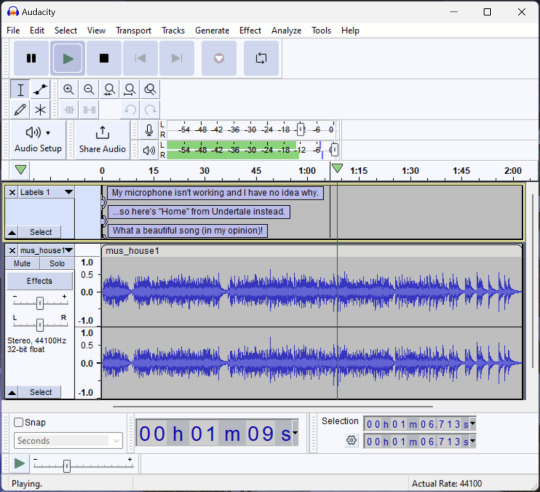
Audacity is another program I've used for a long time. It is not designed to compose music, but it is great for podcasts, simple edits, and loading legacy MS Paint to hear cool noises.
7-Zip
7-Zip is a file manager and archive tool. It supports many archive types including ZIP, RAR, TAR, and its own format, 7Z. It can view and modify the contents of archives, encrypt and decrypt archives, and all that good stuff.

Personally, I use 7-Zip to look inside JAR files for Minecraft reasons. I must admit that its UI is ugly.
Firefox
Firefox is an internet browser, much like Google Chrome, Microsoft Edge, or Safari. While browsers are free, many of them include tracking or other anti-consumer practices. For example, Google plans to release an update to Chromium (the base that most browsers are built from these days) that makes ad blockers less effective by removing the APIs they currently rely on.
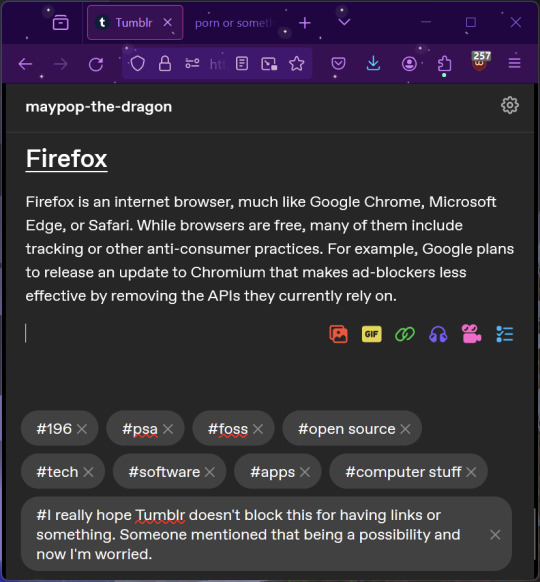
Aside from fighting monopolies, benefits include: support for animated themes (the one in the picture is Purple Night Theme), good ad blockers forever, an (albeit hidden) compact UI option (available on about:config), and a cute fox icon.
uBlock Origin
As far as I know, uBlock Origin is one of the best ad blockers there is.
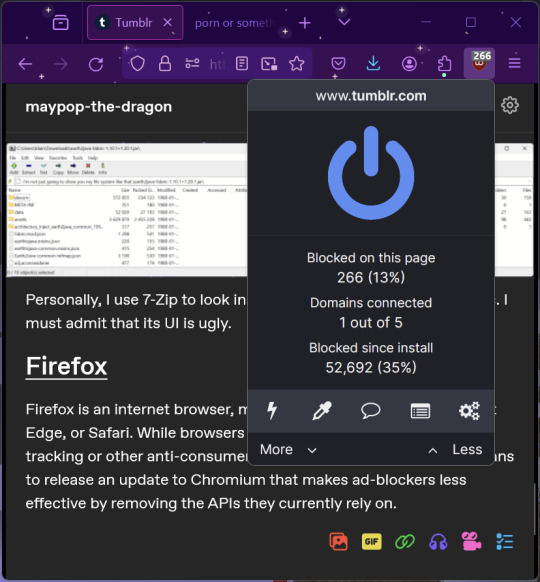
I was on a sketchy website with my brother, and he was using Opera GX's ad blocker. Much of the time when he clicked on anything, it would take us to a random sponsored page. I suggested that he try uBlock Origin, and with uBlock Origin, that didn't happen anymore.
Linux
Linux is a kernel, but the term is often used to refer to operating systems (much like Windows or MacOS) built on it. There are many different Linux-based operating systems (or "distros") to choose from, but apps made for Linux usually work on most popular distros. You can also use many normally Windows-only apps on Linux through compatibility layers like WINE.
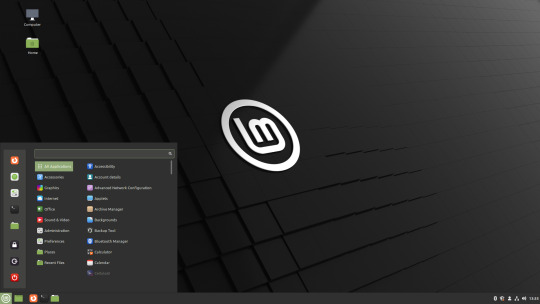
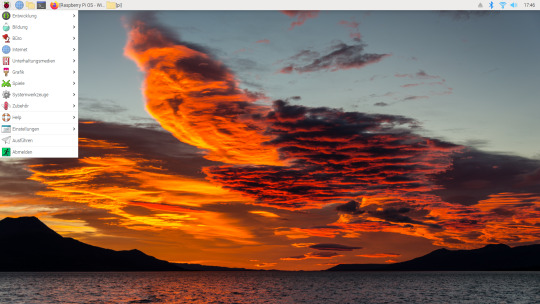
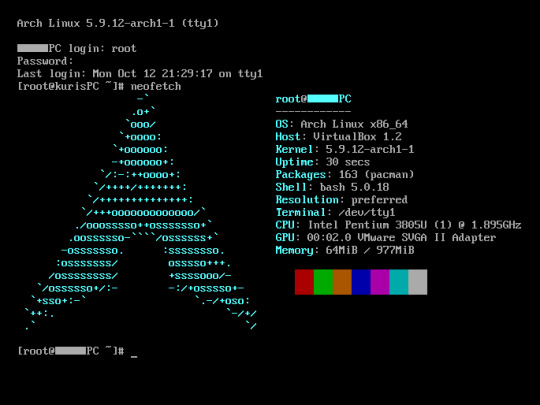
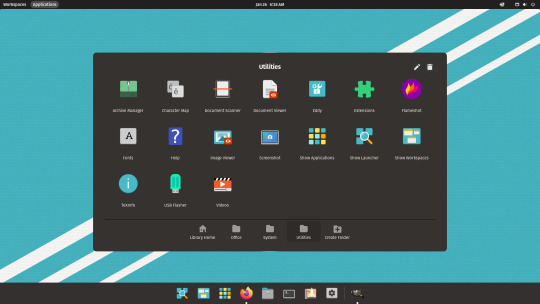
I don't have all four of these, so the images are from Wikipedia. I tried to show a variety of Linux distros made for different kinds of users.
If you want to replace your operating system, I recommend being very careful because you can end up breaking things. Many computer manufacturers don't care about supporting Linux, meaning that things may not work (Nvidia graphic cards notoriously have issues on Linux, for example).
Personally, I tried installing Pop!_OS on a laptop, and the sound output mysteriously doesn't work. I may try switching to Arch Linux, since it is extremely customizable and I might be able to experiment until I find a configuration where the audio works.
Many Linux distros offer "Live USB" functionality, which works as both a demo and an installer. You should thoroughly test your distro on a Live USB session before you actually install it to be absolutely sure that everything works. Even if it seems fine, you should probably look into dual-booting with your existing operating system, just in case you need it for some reason.
Happy computering!
#196#psa#foss#open source#tech#software#apps#computer stuff#I really hope Tumblr doesn't block this for having links or something. Someone mentioned that being a possibility and now I'm worried.#please reblog#2024-01-26
48 notes
·
View notes
Note
*knocks at your door and you open*
Hello, fellow resident. Would you like to hear the words of our lord and savior free (libre) open source software?
uhhhhh.
i’m technically the only lord and saviour here but do tell
2 notes
·
View notes
Note
FOSS ftw!!
Nvm! Slow I scrolled down you mentioned krita (X_X)
that’s my bad!
Yes! Krita is a free software with a decent feature to mess around
151 notes
·
View notes
Text
if i were more energetic i would probably be making some video about unity, godot and the ethics and ideology of open source software to try to communicate the importance of libre-free software to normal people. it's a perfect topical point to springboard off of since it's a very tangible example and one that damn near everyone knows about now
3 notes
·
View notes
Text
The Cooperative Ocean of Clades (8/?)

Follow-up to this article thread
As you may be well aware by now, I am a GLOSS (Gratis, Libre, Open Source Software) enthusiast of sorts. And as I chatted some to a fellow comrade with many shared special interests, I am even more excited to share what my ambitions / dreams / wishes are as far as tech projects are concerned. They aren't all immediate goals, but they do give insight onto what I aim aiming for as far as my tech career is concerned. (painfully realizing I am... less of a backend, computer networking & low-level-tier individual and more of a... explainer, historian, front-end & data science type of lady)

In a nutshell, I do envision a "life scripting" scene where I operate some embedded 6x8" Common Lisp computer (mixing functionality & aesthetics in a copyleft libre ecosystem) with poetic source files & around a bookstore wearing matte black lipstick & Cloven hoof shoes, with Ava (the ENFP social assistant synthetic-tier android I often mention on Discord as of late) by my side;
The way I do imagine implementing such a imaginary computation REPL "workflow" (or rather, a cyber-deck/deque?) would be through a personalized RISC-V SBC (including perhaps some OpenPOWER co-processor) running KDE e.V Plasma or KDE Liquid as the desktop environment (Konsole, Kate...); (Consider also LTO Tape Storage for Data Archival, Apple M3* iMac with Asahi Linux, AIX-tier Hypervisor...);
Still, while I got a bunch more goals and resources to share, this should be quite sufficient for this very article.
Farewell to soon!




4 notes
·
View notes